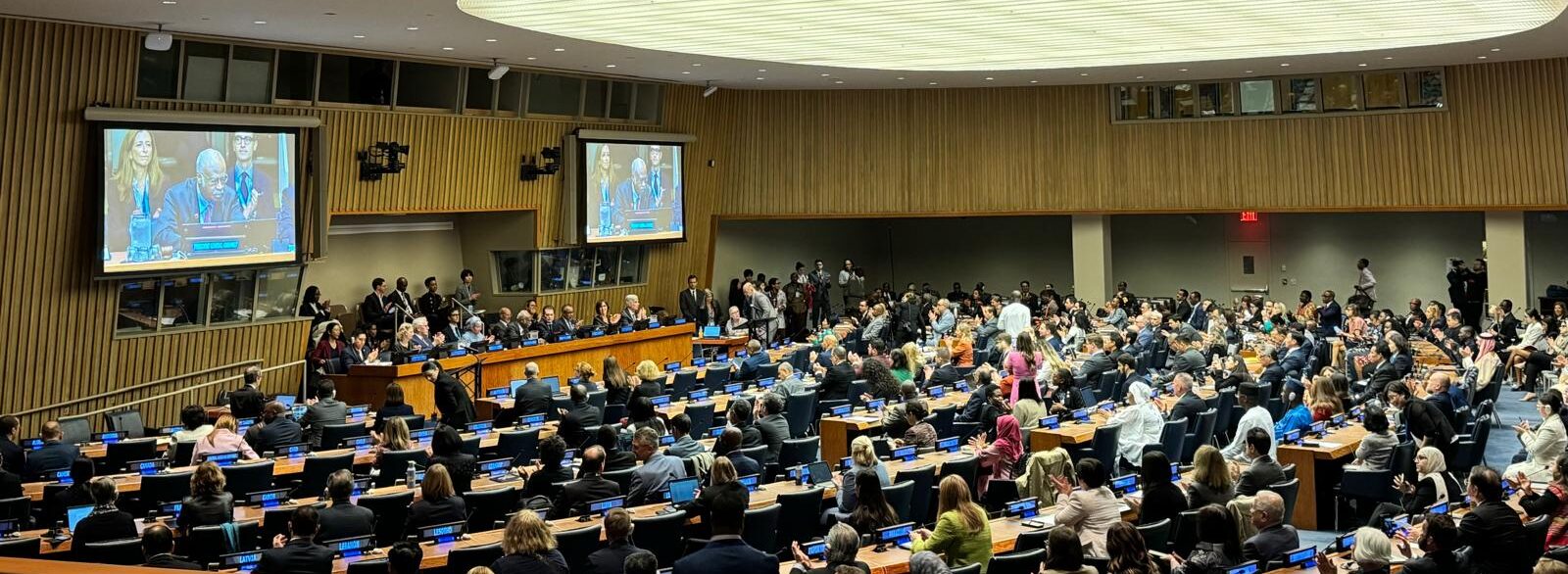On 26th September 2024, the United Nations General Assembly hosted a High-Level Meeting on Antimicrobial Resistance (AMR). The momentous event, attended by global leaders and AMR champions, marked the approval of an international political declaration on AMR, whereby Member States committed to a clear set of targets and actions to address the cross-border threat of AMR to global health, food security, economic development, and the 2030 Sustainable Development Goals.
In the week before the meeting, while stakeholders gathered in New York, ICARS co-hosted a series of side-events, advocating for sustainable AMR action through country-owned and context-specific solutions. Below are some highlights from our action-packed week.
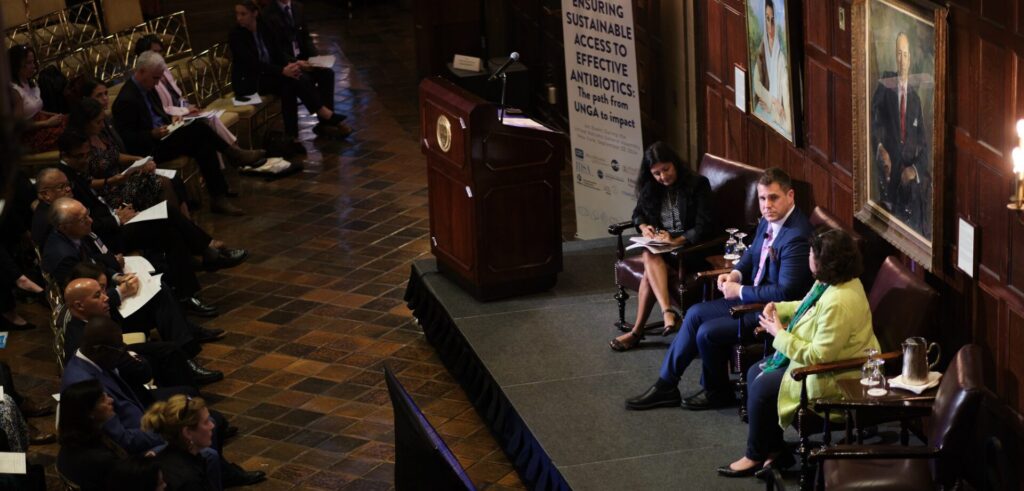
Ensuring sustainable access to effective antibiotics: The path from UNGA to impact
On September 22nd, key voices from across the globe shed light on the AMR crisis, and explored key themes such as raising AMR awareness, improving infection prevention, ensuring access to antibiotics, and fostering innovation. The discussions aimed to turn high-level commitments into actionable steps aligned with UNGA targets.
Notable speakers included Prime Minister Mia Amor Mottley of Barbados, Chair of the Global Leaders Group on AMR, who stressed the need to elevate AMR on political agendas. Ambassadors Vanessa Frazier (Malta) and Francois Jackman (Barbados) emphasised the importance of non-state actors in achieving the goals of the upcoming UN declaration.
ICARS’ Ghada Zoubiane joined a panel with Michael Craig, Centers for Disease Control and Prevention, and Apoorva Mandavilli, New York Times highlighting the importance of awareness-raising coupled with behaviour change as components of effective, context-specific, and targeted interventions to address AMR.
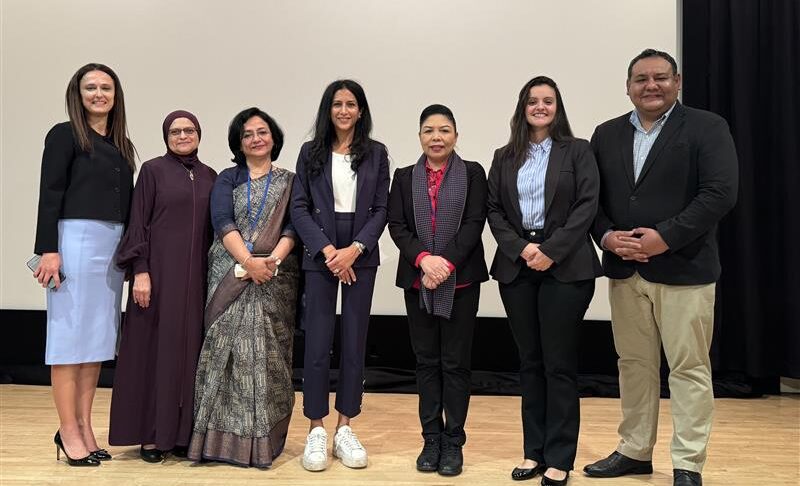
From Policy to Action: Successful implementation of multisectoral AMR programmes in LMICs
On 24th September, country representatives, policymakers, AMR specific donors and regional and international organisations gathered at a side-event ICARS co-hosted with the World Medical Association. The focus of the session was a panel discussion about in-country success stories and lessons learned from National Action Plan implementation, featuring:
- Her Excellency Dr Youk Sambath, Secretary of State, Ministry of Health, Kingdom of Cambodia.
- Dr Juliana Silva Correa, a public health expert with over 10 years of experience in public health, Brazil.
- Dr Ronnie Gavilan, Director of the National AMR committee, Peru.
- Dr Lata Kapoor, Additional Director and Head of AMR Programme Unit, National Centre for Disease Control, Ministry of Health and Family Welfare, India.
In her keynote speech, Helle Engslund Krarup reflected on the critical opportunity the UNGA week provides for those working on AMR to share learnings and feed this valuable evidence into future planning and action. This theme continued through Sabiha Essack’s presentation which looked ahead, offering reflections on the UN declaration on AMR, as well as financing and policy recommendations to enhance future global, national, and local responses.
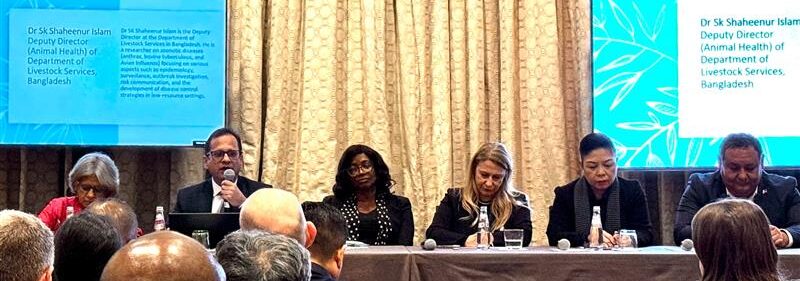
UNGA 2024 High-Level Meeting on AMR and beyond: Bringing the voices and perspectives from Low- and Middle-Income Countries into the dialogue
On 25th September, the Quadripartite Joint Secretariat and ICARS hosted a high-level event which brought the perspectives and experiences of Low- and Middle-Income Countries (LMICs) into the debate and provided grounds for a global policy dialogue about the UN Declaration on AMR. The dialogue featured first-hand interventions from Bangladesh, Brazil, Cambodia, Peru, Ghana and India, an AMR survivor, the Working Group on Youth Engagement for AMR, the Quadripartite organisations, donor countries and financial institutions. Everyone engaged actively in the discussion on the global response to AMR, and shared their experiences and challenges of implementing multisectoral AMR National Action Plans using a One Health approach.
The discussions emphasised the need for increased cooperation among AMR actors and underscored the importance of political and financial commitment, as well as joint action beyond the Declaration.
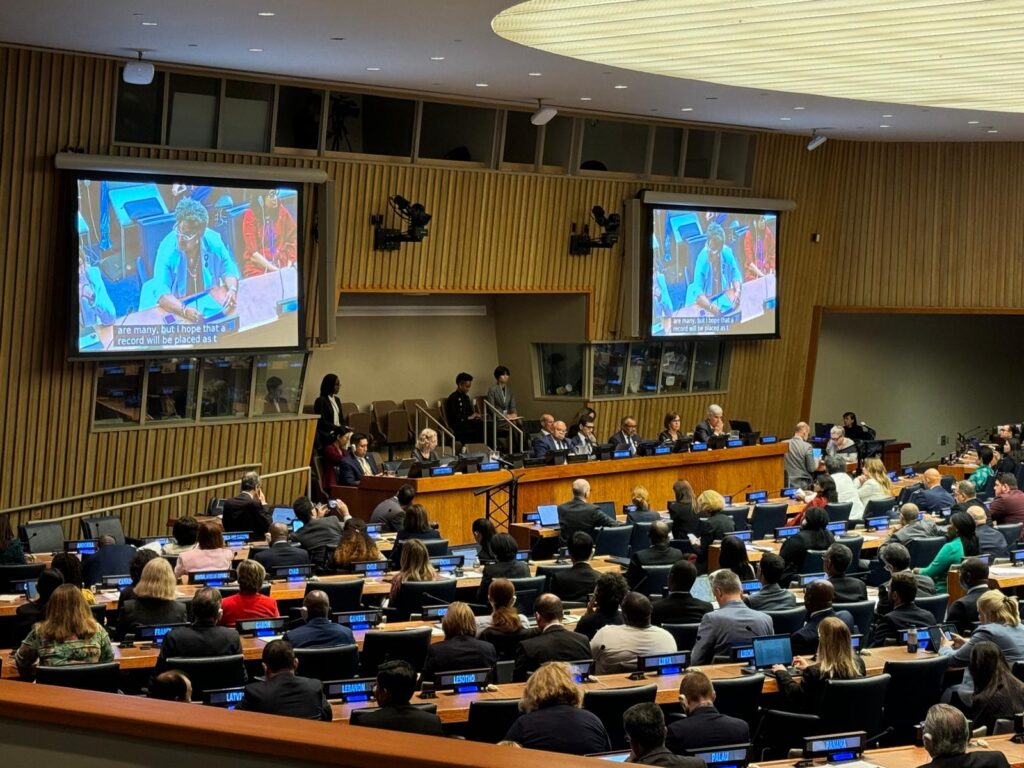
UNGA High-Level Meeting on AMR
Under the theme ‘Investing in the present and securing our future together: Accelerating multi-sectoral global, regional and national actions to address AMR’, global leaders gathered on 26th September to discuss the urgent issue of AMR around the world and approve a political declaration on AMR. ICARS’ Sujith J. Chandy and Helle Engslund Krarup attended the two multi-stakeholder panels . In the main session, the Danish Deputy Permanent Secretary with the Ministry of the Interior and Health, Dorthe Bech Vizard outlined Denmark’s AMR actions and highlighted the important role ICARS is playing partnering with Low- and Middle-Income Countries to address AMR.
Intervention: Dr Sujith J. Chandy
Intervention: Helle Engslund Krarup
Next steps
With the UNGA week now concluded, we must channel the energy and momentum into implementing sustainable solutions to address the significant burden of AMR. Prior to the UN General Assembly, ICARS released a set of recommendations to member states and the global AMR community, which we are committed to upholding through our future work. To see examples of how we are putting these recommendations into practice, click the link below.

